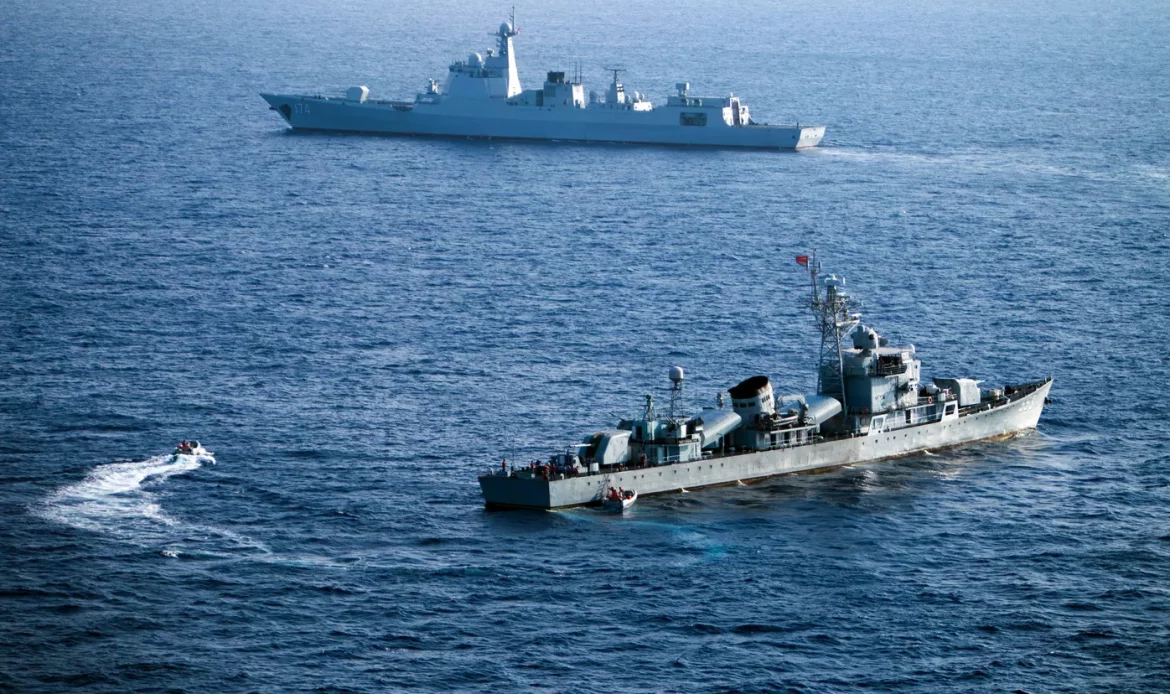According to the FT, Beijing is working on at least two additional security deals with Pacific island nations following an earlier agreement with the Solomon Islands. The April agreement allows the archipelago to request Chinese security reinforcements in the case of public unrest.
Chinese troops may soon be placed in close proximity to the US’ Indo-Pacific Command in Hawaii, the Eurasian Times has noted in the wake of a Financial Times report about Beijing’s plans to expand security deals in the Pacific in the near future.
According to FT sources, Kiribati is one of the two nations that China is currently eyeing up for security agreements akin to the one it signed with the Solomon Islands in April. The April agreement allows the Solomon Islands to request Chinese troops to be deployed, while leaked documents cited by the New York Times also allege that the security pact permits Chinese vessels to use the islands for refuelling and stopovers.
While the framework of any China-Kiribati security deal is still unclear, and the Pacific nation denies even being in talk over the issue, last year, Reuters claimed that such a pact would effectively turn Kiribati into a Chinese air base, citing an unnamed adviser to the Pacific government.
“The island would be a fixed aircraft carrier”, Reuter’s source said.
China is already working on upgrading an airstrip on Kanton Island, at Kiribati’s request. Kanton Island, which belongs to Kiribati, was used by the US during the Second World War. Currently, it is unclear what use it may serve considering that there is no economic activity there.
Likewise, Beijing recently signed a deal to upgrade another former US air strip in the Pacific – the international airport in Luganville, Vanuatu – a small nation in the South Pacific.
From Infrastructure Investment to Security Pacts?
The Solomon Islands and Kiribati are not the only regional allies that China has been trying to court in recent years.
Beijing has been offering generous infrastructure credits to Asian nations devoid of alternative international funding sources. In addition, China has been pushing its megaproject Belt and Road Initiative by funding upgrades to the logistics infrastructure of neighbouring countries.
However, these investments came without security clauses, unlike that signed with the Solomon Islands. The pact with the Solomon Islands also came in the wake of the so-called AUKUS security agreement between Australia, the US and the UK, which sees the southern nation gaining access to nuclear-powered submarines. Beijing strongly objected the AUKUS pact, accusing it of violating global non-proliferation efforts and of specifically targeting China.
AUKUS is not the only instance of the US undermining Chinese national security. Beijing has long accused The Quad, an alliance between the US, India, Japan and Australia, of being specifically created in 2007 to prevent China’s global rise and undermine its national interests. Chinese state media has even dubbed it “the Asian version of NATO” over its annual Malabar naval exercises.
Washington’s continuing rapprochement with Taiwan, an island that Beijing sees as a breakaway province, including sending US warships to the Taiwan straits, has also triggered China’s condemnation. Beijing insists that such “provocations” might lead to unexpected armed confrontation.
On the flip side, the US is reportedly growing increasingly concerned over China’s efforts to expand its network of security agreements with Pacific nations, the FT reported citing an unnamed Department of State official.
Another official told the FT that China has been in “on-and-off” talks with Kiribati for years and was purportedly attempting to establish “strategic perches” in the Pacific region.
Experts cited by The Eurasian Times, have noted that Kiribati is located at the centre of the Pacific and importantly intercepts
Source: Sputnik



